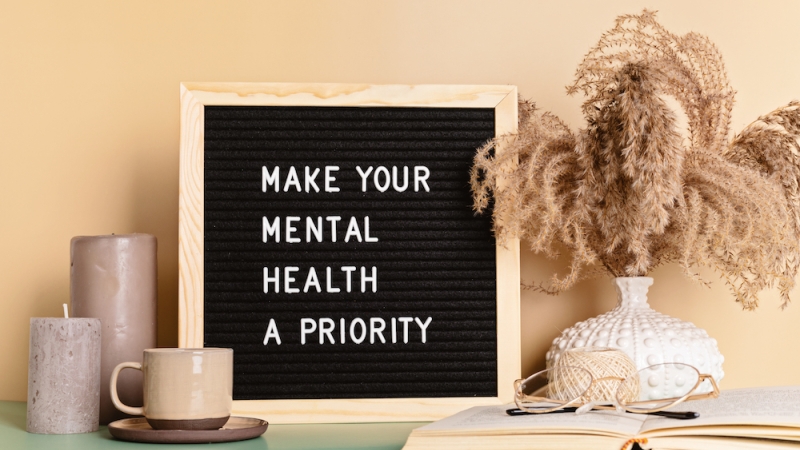Posted On: April 19, 2024
The spring months bring us the sights and sounds of new growth and renewal, which is a perfect time to recognize Mental Health Awareness. This is a time to raise awareness of and reduce the stigma surrounding behavioral health issues. Mental illness and addiction can affect all of us, including our society at large. According to the National Institute of Mental Health, it’s estimated that more than 1 in 5 U.S. adults live with a mental illness. Although the mind and body are often viewed as separate, mental and physical health are closely related. Your mental health plays a huge role in your general well-being. A good mental state can keep you healthy and help prevent serious health conditions.
When you take care of your mental health, your physical and emotional health improves; you become more resilient; and it makes it easier to find ways to manage life stressors in a healthy and positive way. Focusing on self-care is important because we play a part in each other’s mental wellness. It’s up to each of us to be a lifeline, sharing in a commitment to care for ourselves and those around us. This is such a healthy and important step because, by raising awareness and acceptance of mental health, we help remove the stigma, enforce the message that it is okay to not be okay, and encourage people to seek help when they need it.
When it comes to mental wellness, small actions can have a big impact. During Mental Health Awareness Month, focus on doing something kind for others, share a smile, a compliment and observe how even small actions make a positive impact on others, as well as boost your own mental health. More importantly, check in on loved ones and ask them about how they’re doing. Talk to your kids about their mental health.
So, make self-care a priority this spring and beyond. Spread positivity. Be hopeful. Practice patience and kindness and empathy toward others. It may just make a life-changing difference.
Here are just a few suggested strategies that you can use to maintain positive mental health. The key is to try them and see what works for you. Then put them into practice regularly.
- Enjoy the outdoors and the beauty of nature
- Stay connected with family, friends, and your community
- Practice mindful techniques such as breathing techniques or meditation
- Take on new activities, and hobbies, and pursue your interests
- Volunteer in your community or church
- Make sure you’re getting enough sleep, eating right and exercising
- Join a support group
- Reduce or eliminate alcohol and other harmful substance use
- Practice self-gratitude
